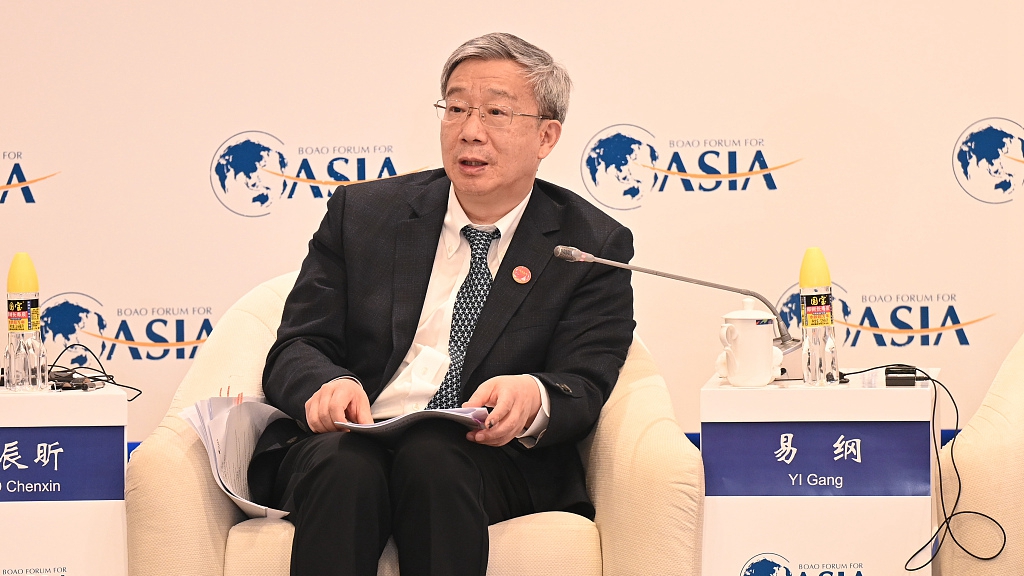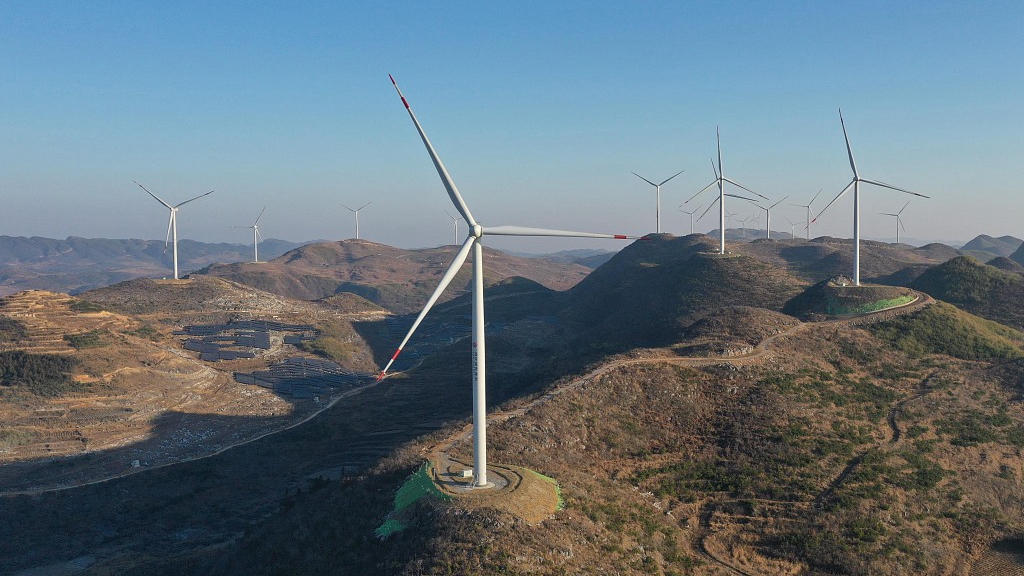
China's central bank governor Yi Gang speaks at the Boao Forum for Asia in south China's Hainan Province, March 29, 2023. /CFP
China's central bank governor Yi Gang speaks at the Boao Forum for Asia in south China's Hainan Province, March 29, 2023. /CFP
China's authorities talked about how the financial sector can facilitate the country's ambitious goal of hitting carbon neutrality in 2060 at the Boao Forum for Asia (BFA) on Wednesday.
The world's second-largest economy aims to reach peak carbon emissions by around 2030. The "carbon neutrality" goal goes a step further, referring to net-zero carbon emissions.
Yi Gang, governor of the People's Bank of China (PBOC), the central bank, highlighted the need for both the "carrots" and the "sticks" to achieve the country's green goals. He referred to financial incentives as "carrots" to spur market participation whereas "sticks" are carbon prices and carbon taxes.
Through a PBOC support tool, commercial banks could apply for low-cost funding from the central bank after the loans for carbon reductions are made.
The PBOC will provide 60 percent of the loan principal made by commercial banks for carbon-emission cuts, with a one-year lending rate of 1.75 percent.
Commercial banks are required to publicly disclose information on the carbon-reduction loans and the emission cuts financed by such loans.

A wind farm in southwest China's Guizhou Province, January 8, 2023. /CFP
A wind farm in southwest China's Guizhou Province, January 8, 2023. /CFP
Yi said that over 300 billion yuan ($43.6 billion) in re-lending facilities have been issued, with similar treatment for both domestic and foreign-funded projects.
In recent years, the PBOC has been carrying out international cooperation as climate change is an international issue, said Yi.
"Together with the European Commission, we achieved an 80-percent convergence rate in green finance taxonomy between China and the EU," he added.
Meanwhile, Zhou Xiaochuan, BFA vice chairman and former PBOC governor, talked about the necessity of designing an objective function to weigh prices on different policy goals to achieve the optimal solution under multiple objectives on the path to reduce carbon emissions.
Zhao Chenxin, deputy director of China's National Development and Reform Commission (NDRC), warned that challenges lie ahead in China's pursuit of carbon peak and carbon neutrality.
He said that the NDRC will further promote the clean and efficient use of coal and vigorously develop renewable energy, solidifying energy security by providing a reliable ground for promoting high-quality development.
Separately, Ban Ki-moon, BFA chairman and former UN secretary-general, stressed the importance of Sino-U.S. cooperation on climate change.
"This is absolutely necessary... that China and the United States work hand-in-hand in a harmonious way to deal with many global issues," Ban said in an interview with CGTN, adding that they should start with climate issues.